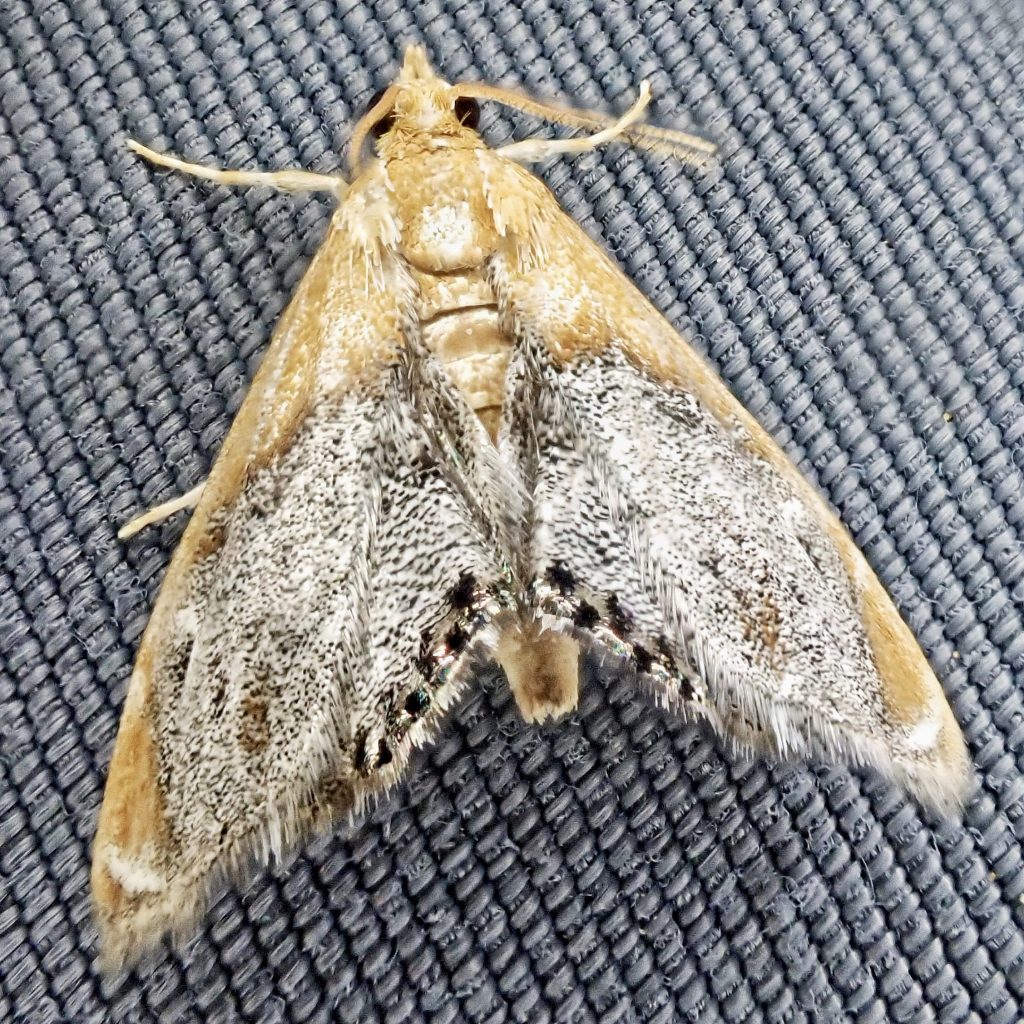
Absolutely the coolest moth I found on the 1st Night of Moth Week was this little orange and grey member of the family Crambidae. I thought it was pretty neat on looks alone, but then I figured out that it was Chalcoela iphitalis (sooty-winged Chalcoela) and my interest level went through the roof, because the larvae of these moths reverse the standard order of things, whereby wasp parasitoids utilize moth larvae to host their young. Instead the female Chalcoela iphitalis lay their eggs on or near the nests of paper wasps, and the moth larvae feed on the wasp larvae! Talk about a wolf in sheep’s clothing!
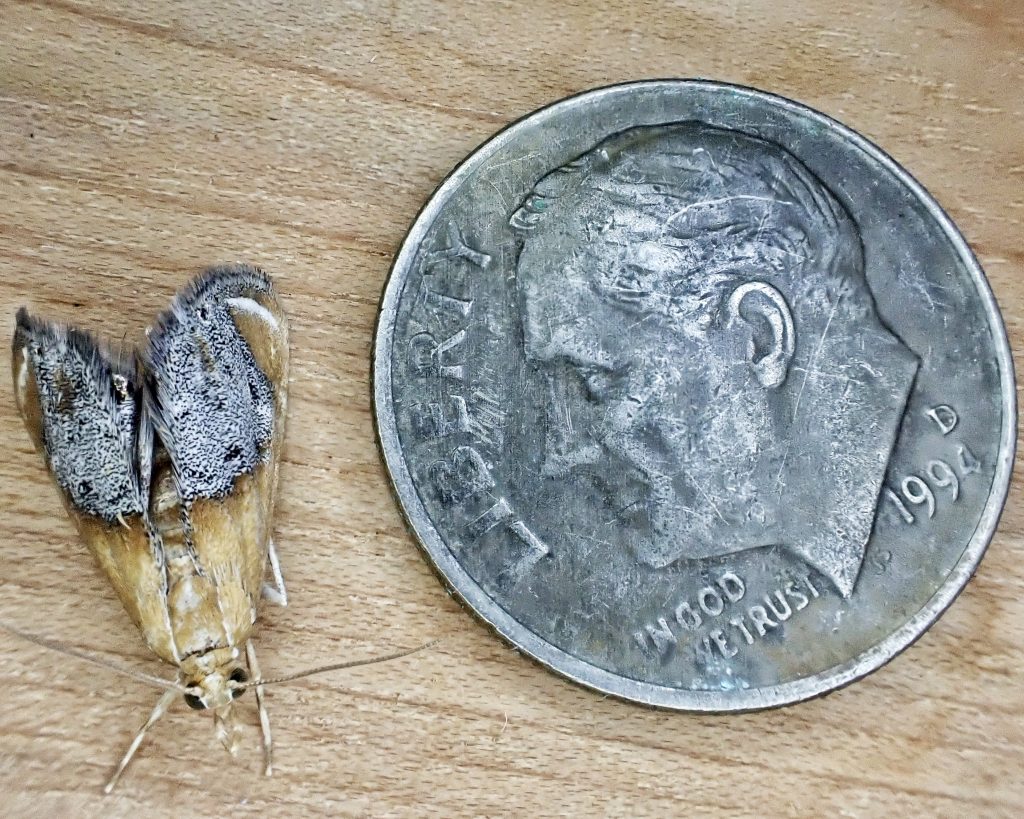
I knew that there were moth parasitoids (as well as predaceous caterpillars) but since I just set up lights and see what comes I had never bothered to find out which ones they were. So I had no idea how excited I would be at finding these moths, and I probably talked a blue streak about how cool they were when my dad came out to see how his bug crazed son was doing wandering around in the dark. Considering how common Polistes dominula is in our area I am surprised that I haven’t seen these moths before (as well as being disappointed that I somehow haven’t profiled P. dominula yet), but I was lucky enough to find and photograph 3 of them last night. Happy Moth Week, Dan! I can’t wait to see what I find tonight!
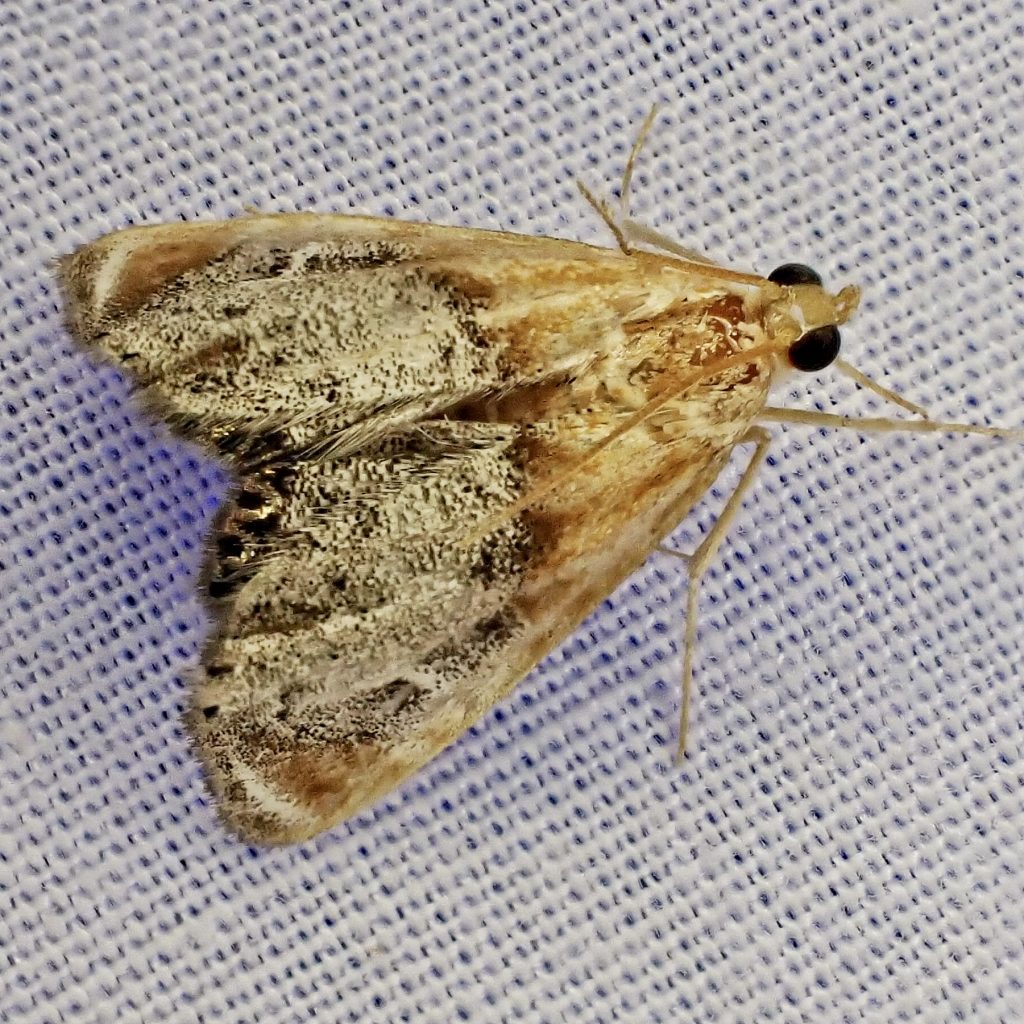
Description– Small (fw length 9-11mm) crambid moth with a forewing that is mostly orange on the basal half and mostly speckled grey distally; there is a row of black spots at the margin, and usually a whitish line in the discal area, as well as a curved, white line near the wing apex.
Similar species– Dicymolomia opuntialis is very similar but has a dark colored spot rather than a light colored line in the discal area, and is only found in Southern California; nothing else in our region looks like this.
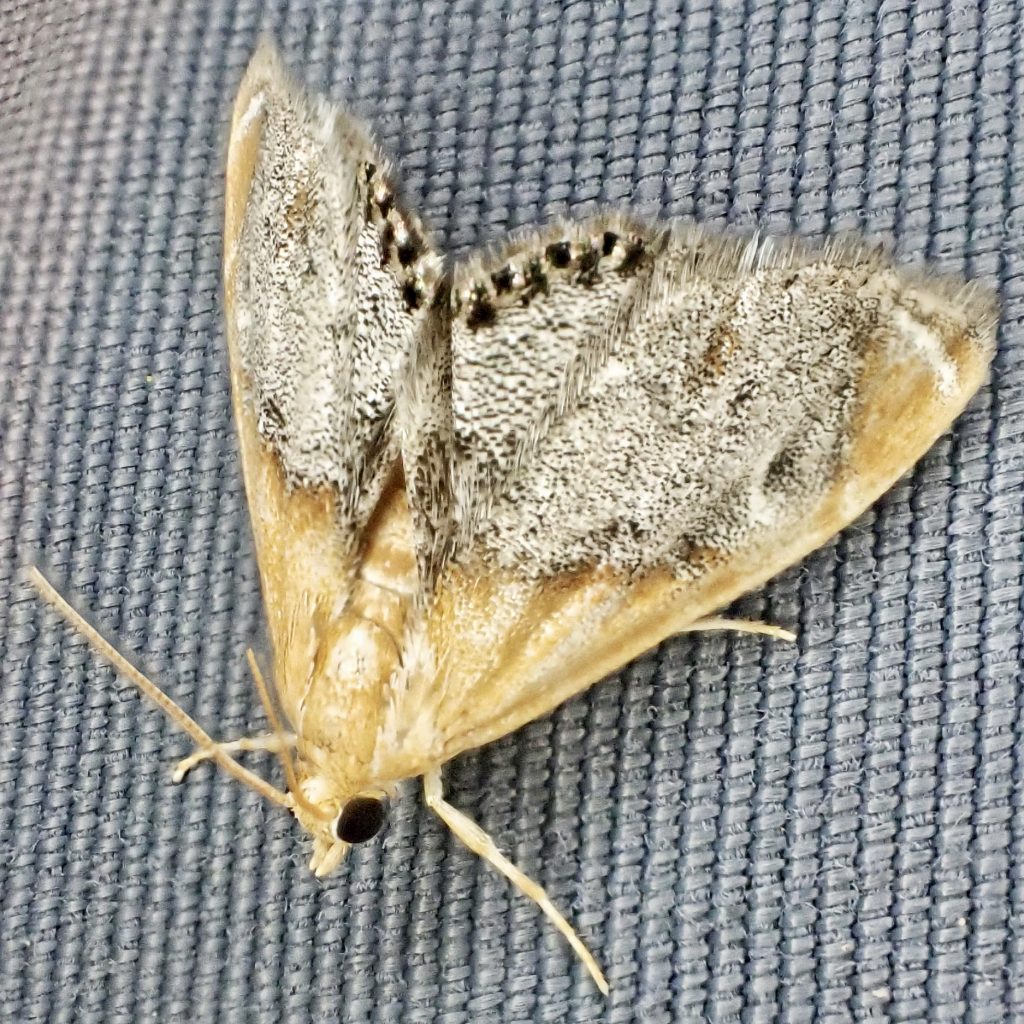
Habitat– Wherever their larval host paper wasps are found.
Range– Most of North America; appears to be found region wide in the PNW.
Adults active– Nocturnal; from May into August
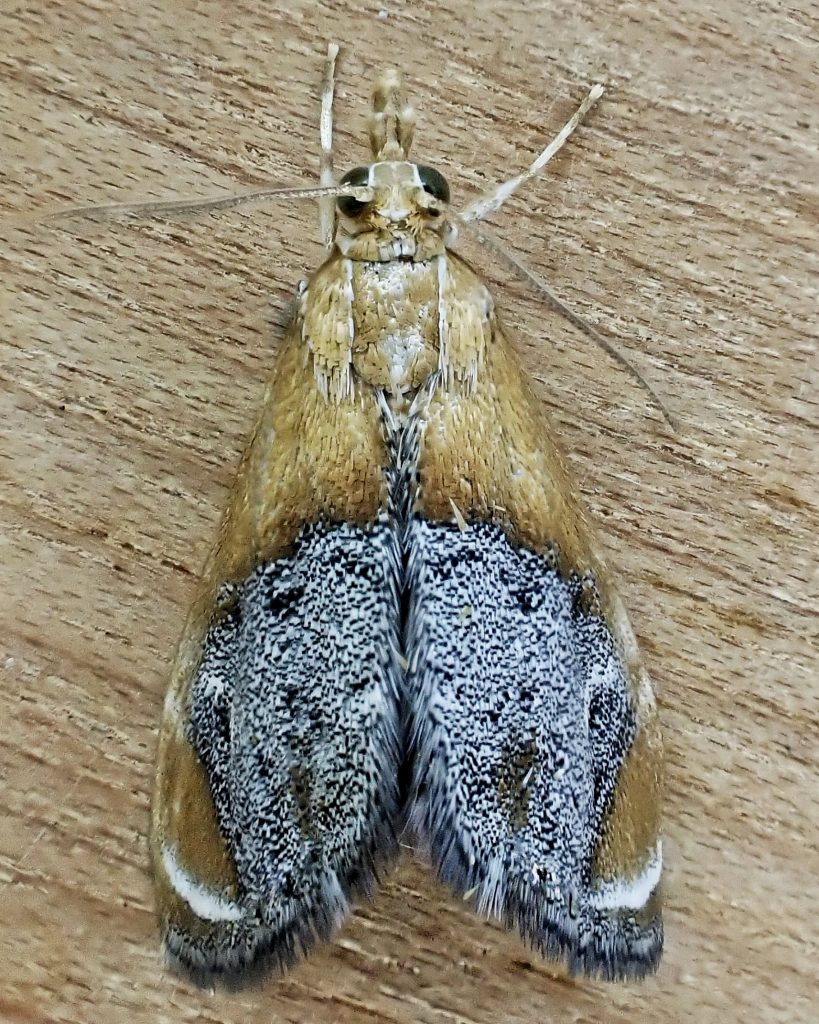
Eats– “Larvae are parasitoids that feed on the larvae of paper wasps (Polistinae) including Mischocyttarus basimacula and several Polistes…” Species Chalcoela iphitalis – Sooty-winged Chalcoela – Hodges#4895 – BugGuide.Net
Eaten by– Presumably a host for parasitoids in Hymenoptera and Diptera, and probably preyed upon by insectivores of all classes, but I can find nothing specific for this species
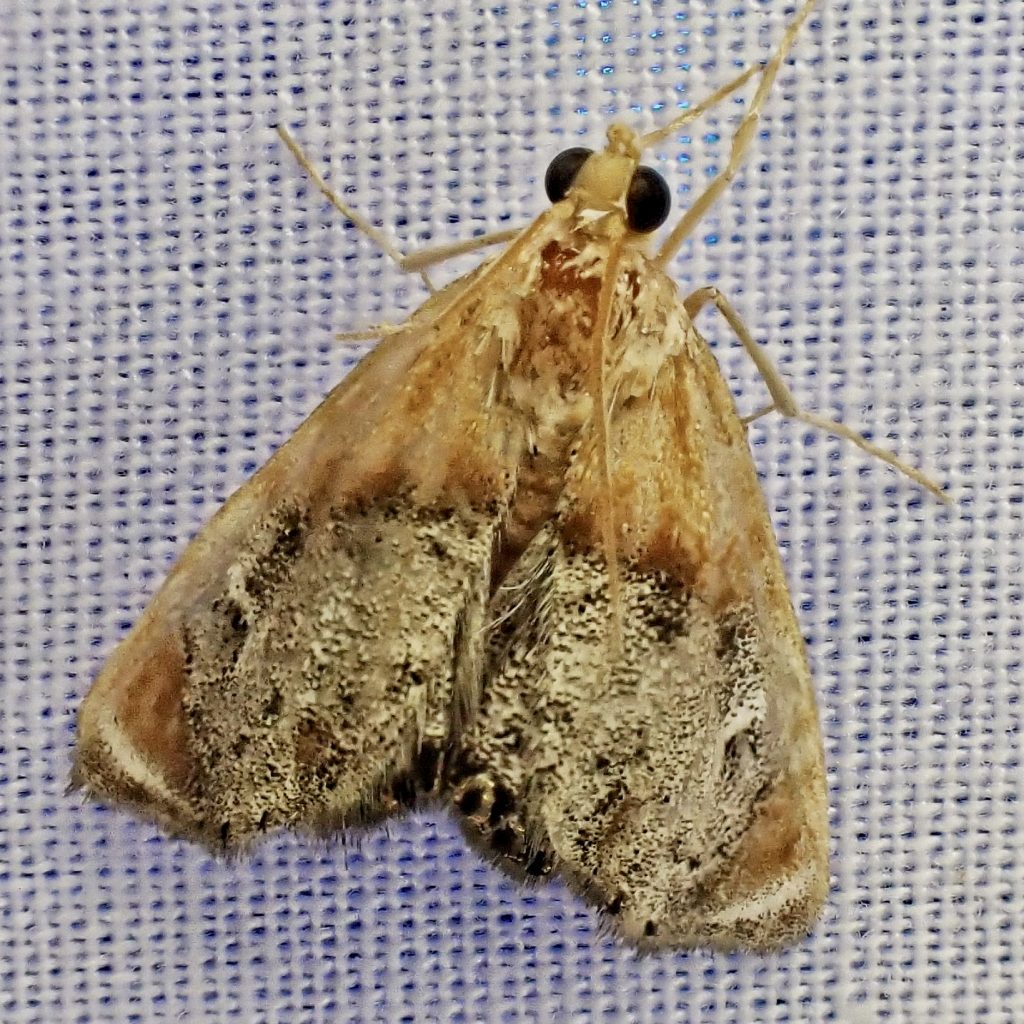
Life cycle– “Larvae make visible webs on the nest and early instars often can be seen on the web. They overwinter as pupae in the wasp nest pupal chambers. (2)” Species Chalcoela iphitalis – Sooty-winged Chalcoela – Hodges#4895 – BugGuide.Net; “…The larvae were found by Phil Rau to be predaceous on grubs of papermaking wasps (Polistes, Mischocyttarus, Vespidae) in Texas and Mexico, sometimes two or more per cell of larger wasp species. Chalcoela iphitalis apparently is bivoltine, with flight records from April to mid-June and mid- July to September at Berkeley.” Powell/Opler, “Moths of Western North America”; 2009
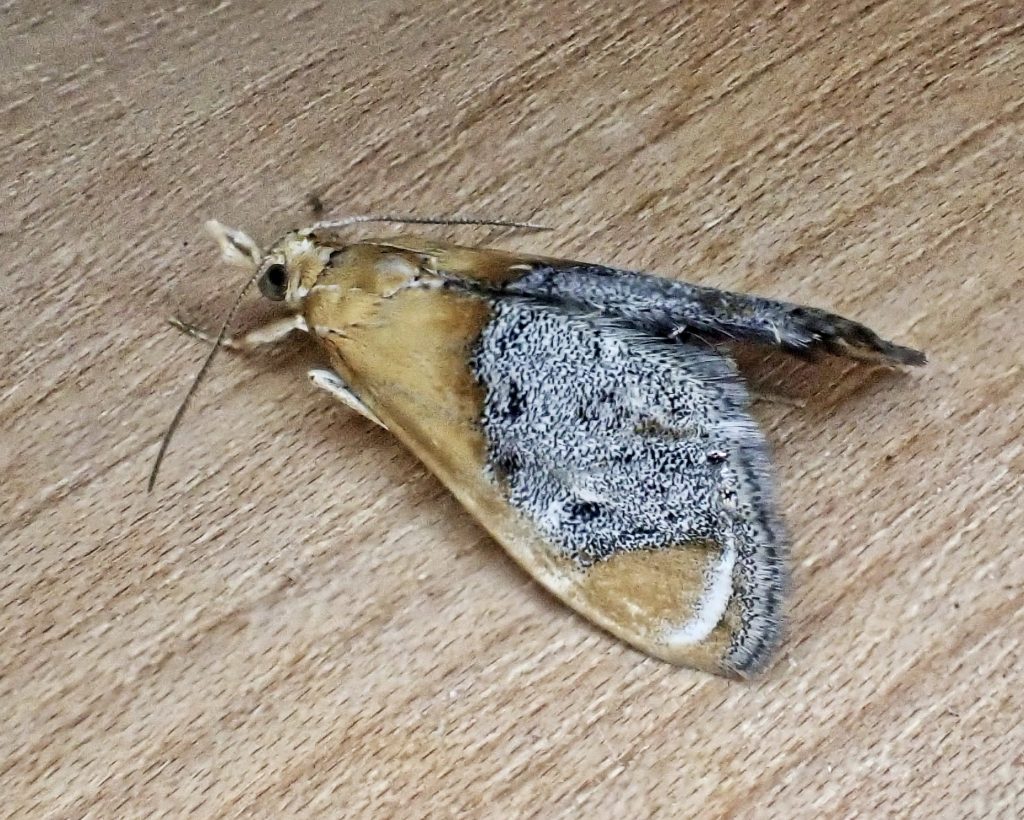
Etymology of names–Chalcoela is from the Greek words for ‘copper/brass’ and ‘nail’, and refer to markings on the hindwing of the type species. The specific epithet iphitalis appears to be a combination of the Greek word for ‘strong’ and the Latin suffix for ‘of such a kind’, which may have something to do with the larvae preying on wasp larvae, although I cannot verify that.
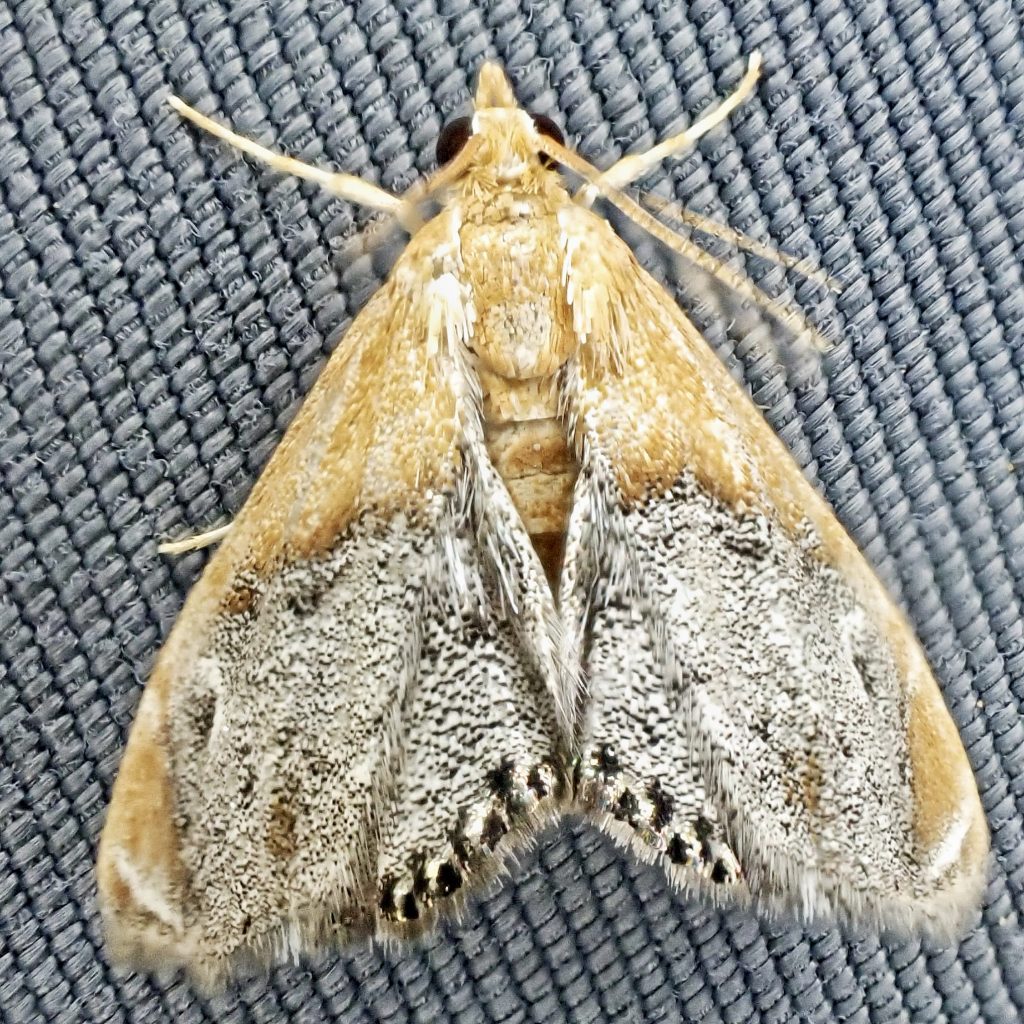
Species Chalcoela iphitalis – Sooty-winged Chalcoela – Hodges#4895 – BugGuide.Net
Chalcoela iphitalis of Block Island
http://mothphotographersgroup.msstate.edu/species.php?hodges=4895
https://en.wikipedia.org/wiki/Chalcoela_iphitalis
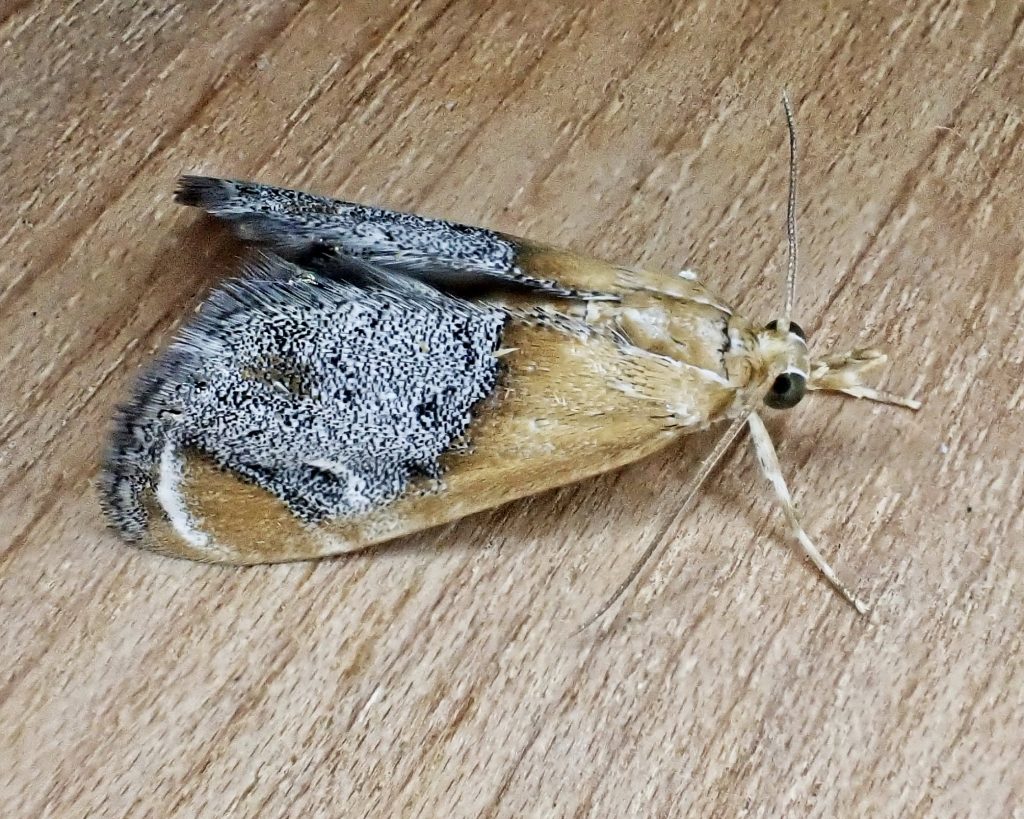
2 thoughts on “Chalcoela iphitalis (Sooty-winged Chalcoela)”